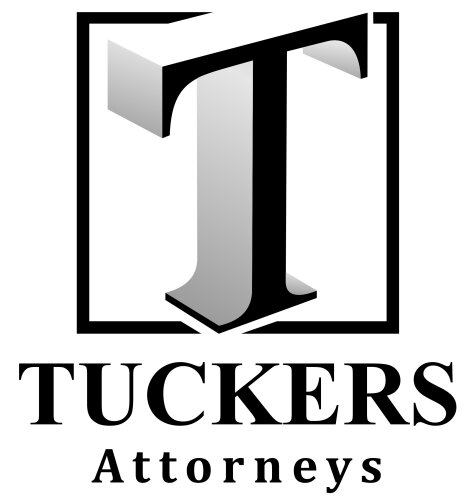Best Faith-Based Law Lawyers in Boksburg
Share your needs with us, get contacted by law firms.
Free. Takes 2 min.
List of the best lawyers in Boksburg, South Africa
About Faith-Based Law in Boksburg, South Africa
Faith-based law in South Africa generally refers to the legal aspects related to religious practices, institutions, and the intersection of faith with secular law. In Boksburg, a city located in Gauteng province, people from various religious backgrounds often encounter situations where their religious beliefs and practices intersect with statutory and common law. South Africa’s Constitution protects freedom of religion, and religious communities are free to form associations and preside over their own internal affairs, as long as they do not interfere with public order, health, or morals, or infringe on the rights of others.
Why You May Need a Lawyer
There are several scenarios where individuals and religious organizations in Boksburg may require legal assistance regarding faith-based law. Such situations include establishing and registering religious organizations, drafting constitutions or codes of conduct, property acquisitions for religious use, employment matters involving clergy or staff, and managing disputes within religious communities. Legal help is also often necessary in matters relating to marriage, divorce, or burials according to specific religious rites. Furthermore, when religious freedoms appear to be in conflict with municipal bylaws or national laws, a lawyer specializing in faith-based law can offer critical guidance.
Local Laws Overview
In Boksburg, like the rest of South Africa, religious freedom is enshrined in Section 15 of the Constitution. This ensures that every person may practice their religion provided it does not encroach on other rights or the law. Faith-based entities can register as non-profit organizations under the Nonprofit Organisations Act of 1997, which provides them with legal standing and certain benefits. Local zoning laws may impact the establishment of religious properties, sometimes necessitating specialized legal expertise to navigate municipal requirements. Issues surrounding religious holidays, attire, or customs in public institutions often find legal resolution based on both local bylaw interpretation and national policy frameworks.
Frequently Asked Questions
What does faith-based law cover in Boksburg?
Faith-based law involves the legal recognition and protection of religious practices, the administration of religious organizations, and the intersection of personal law with statutory requirements.
Are marriages conducted under religious law legally recognized in Boksburg?
Some religious marriages, like those performed under the Marriage Act or the Recognition of Customary Marriages Act, are recognized. Others may require civil registration for full legal recognition, especially regarding inheritance or divorce.
Can a religious organization own property in Boksburg?
Yes, registered religious organizations can own property, but must comply with relevant procedures, including proper registration and adherence to municipal zoning laws.
How can a religious community register as a legal entity?
Most communities register as non-profit organizations with the Department of Social Development, which grants them legal standing to operate, own property, and employ staff.
What should I do if my religious freedoms are being restricted by authorities?
Consult with a lawyer experienced in constitutional and administrative law to evaluate your case and determine if your rights have been infringed upon, and what remedies are available.
Can religious employers in Boksburg enforce codes of conduct based on faith?
Yes, within reason. Employment codes must still comply with the Labour Relations Act and cannot override statutory protections against unfair discrimination.
Are there restrictions on public religious events in Boksburg?
Public safety and municipal bylaws may require permits for gatherings, amplified sound, and processions. Legal advice may be needed to ensure compliance and avoid penalties.
Do public schools in Boksburg have to accommodate religious practices?
Schools must respect the constitutional right to freedom of religion, but this must be balanced with the broader legal framework and may require case-specific interpretation.
What role does traditional or customary law play in religious matters?
Traditional law is recognized in certain contexts, particularly for marriage and succession, but must align with the Constitution’s provisions and other national laws.
Where can I report discrimination based on my religious beliefs?
You may approach the South African Human Rights Commission, the Equality Court, or seek the assistance of a lawyer to pursue remedies for discrimination.
Additional Resources
For further information and legal assistance regarding faith-based law in Boksburg, consider these organizations:
- Department of Social Development (for nonprofit registration) - South African Council for Religious Rights and Freedoms - Commission for the Promotion and Protection of the Rights of Cultural, Religious and Linguistic Communities (CRL Rights Commission) - South African Human Rights Commission (for complaints) - Legal Aid South Africa (offers some free legal services) - Local legal clinics and community advice centres
Next Steps
If you require legal advice in faith-based law, begin by identifying the specific issue or challenge you are facing. Gather all relevant documentation, such as organizational constitutions, permits, or correspondence with authorities. Contact a lawyer with experience in religious and constitutional law for a consultation. If cost is a concern, reach out to Legal Aid South Africa or local legal clinics for assistance. Timely legal intervention can help protect your rights, resolve disputes, and ensure that your faith-based rights and responsibilities are properly observed under local laws in Boksburg.
Lawzana helps you find the best lawyers and law firms in Boksburg through a curated and pre-screened list of qualified legal professionals. Our platform offers rankings and detailed profiles of attorneys and law firms, allowing you to compare based on practice areas, including Faith-Based Law, experience, and client feedback.
Each profile includes a description of the firm's areas of practice, client reviews, team members and partners, year of establishment, spoken languages, office locations, contact information, social media presence, and any published articles or resources. Most firms on our platform speak English and are experienced in both local and international legal matters.
Get a quote from top-rated law firms in Boksburg, South Africa — quickly, securely, and without unnecessary hassle.
Disclaimer:
The information provided on this page is for general informational purposes only and does not constitute legal advice. While we strive to ensure the accuracy and relevance of the content, legal information may change over time, and interpretations of the law can vary. You should always consult with a qualified legal professional for advice specific to your situation.
We disclaim all liability for actions taken or not taken based on the content of this page. If you believe any information is incorrect or outdated, please contact us, and we will review and update it where appropriate.









